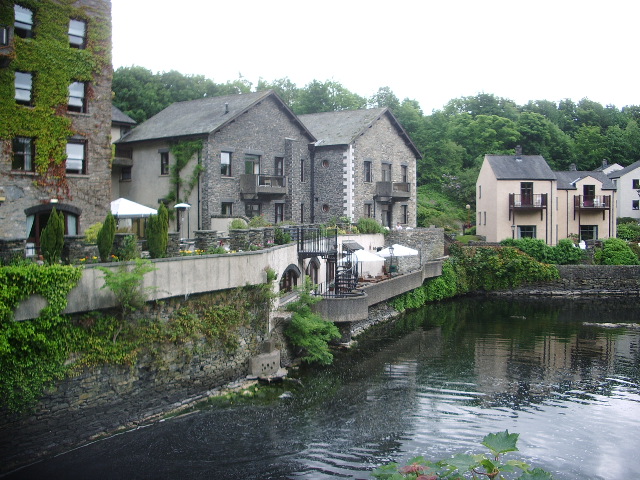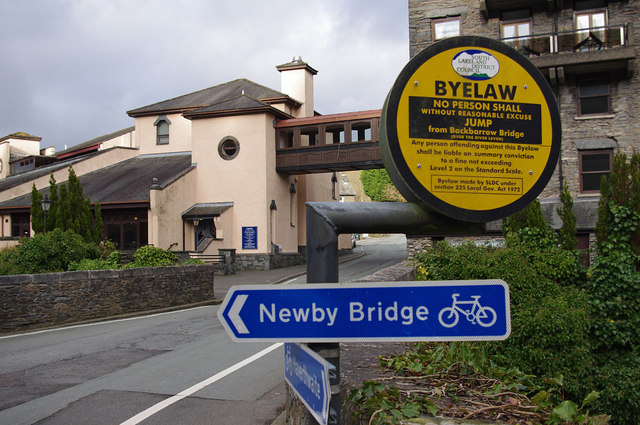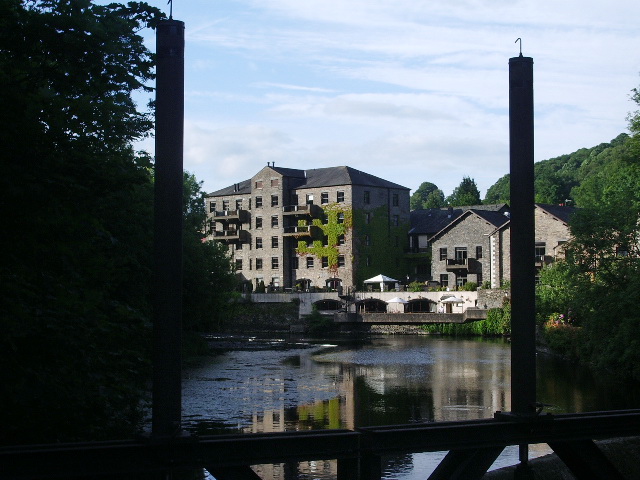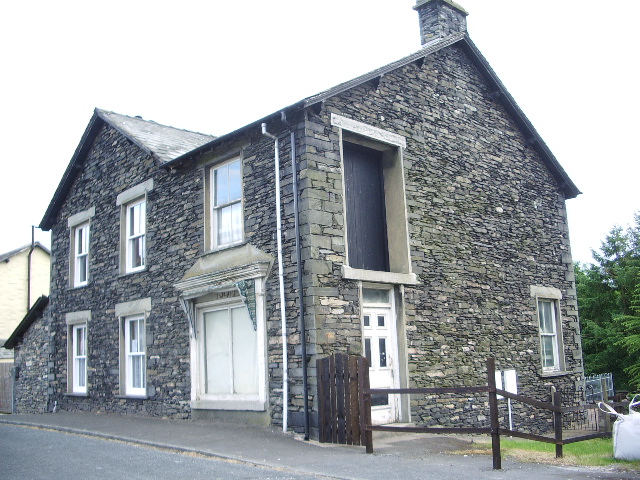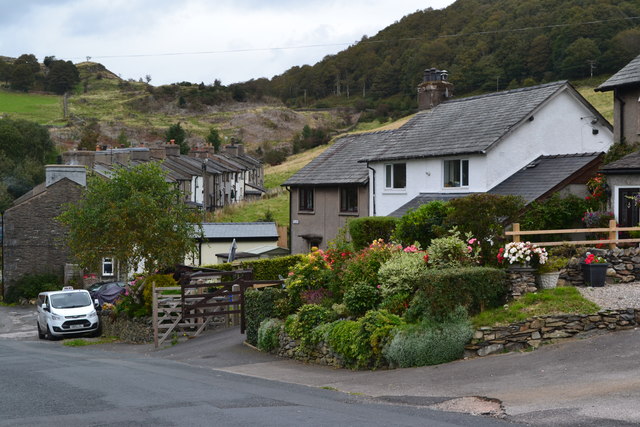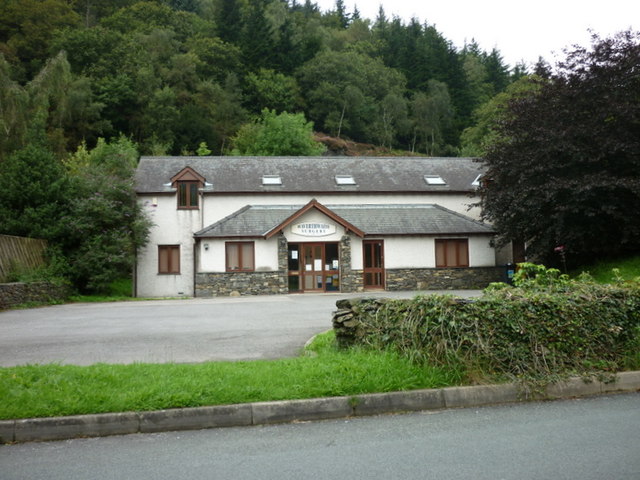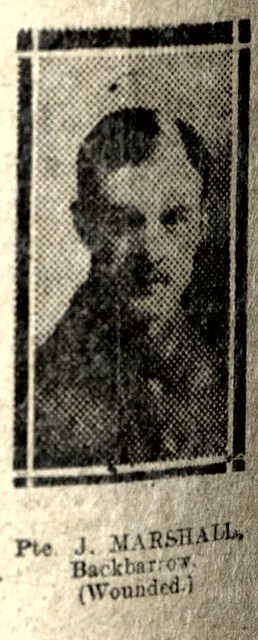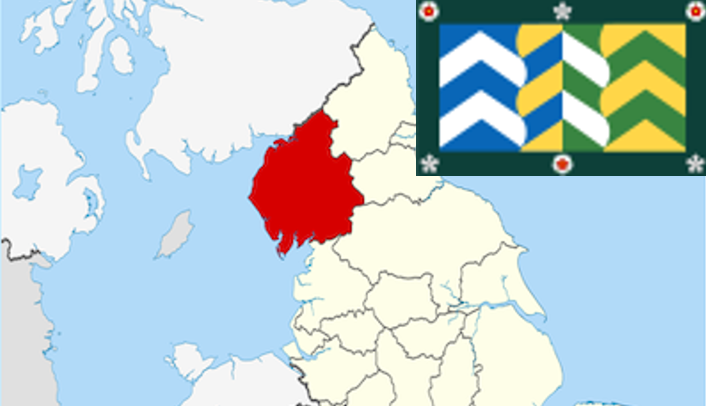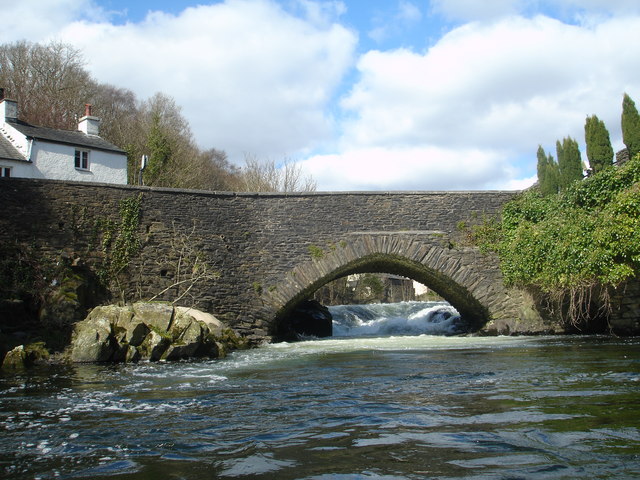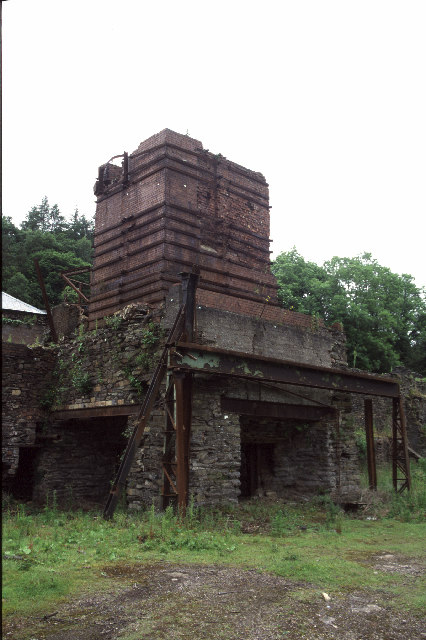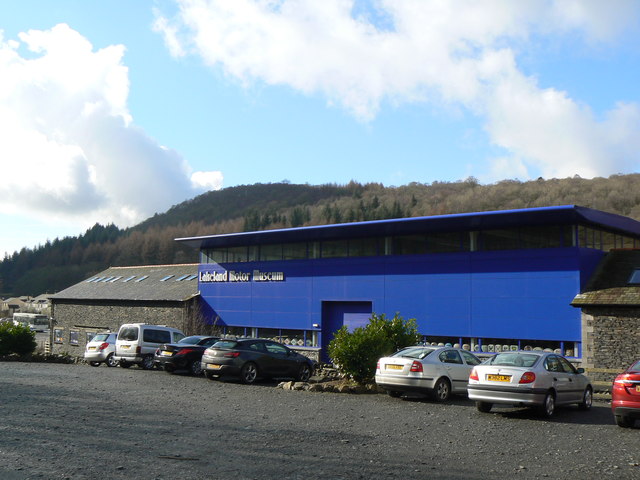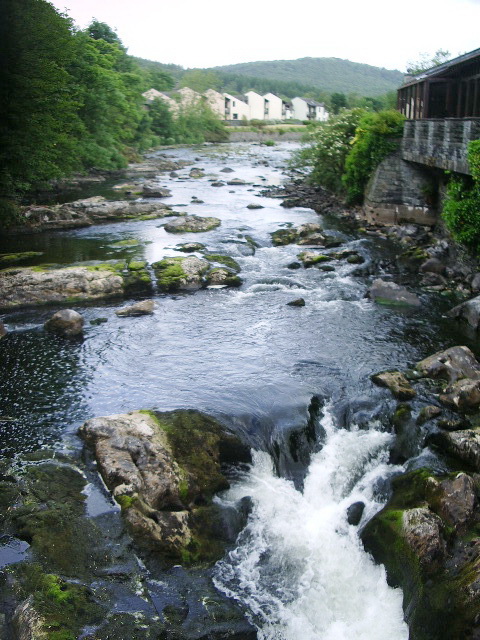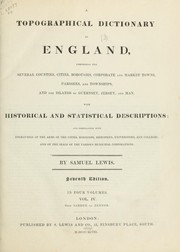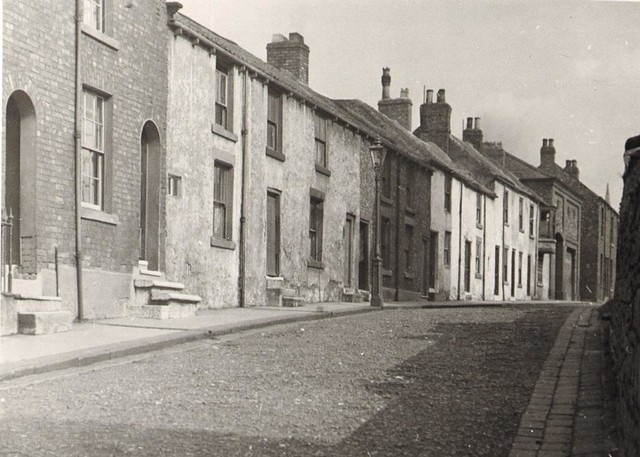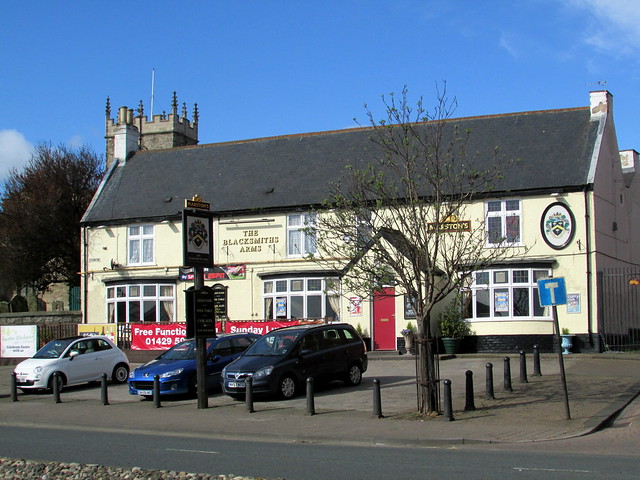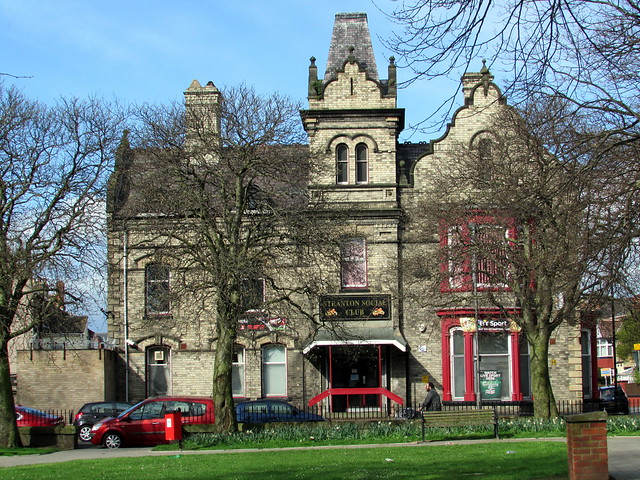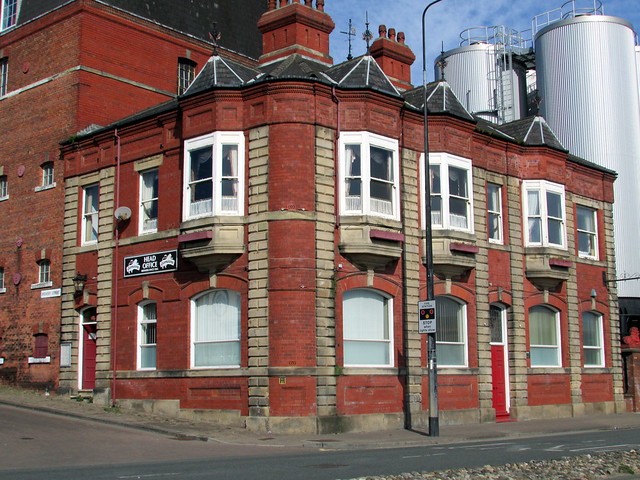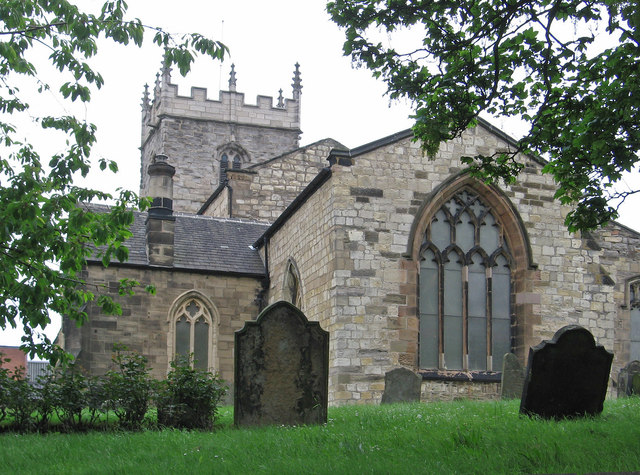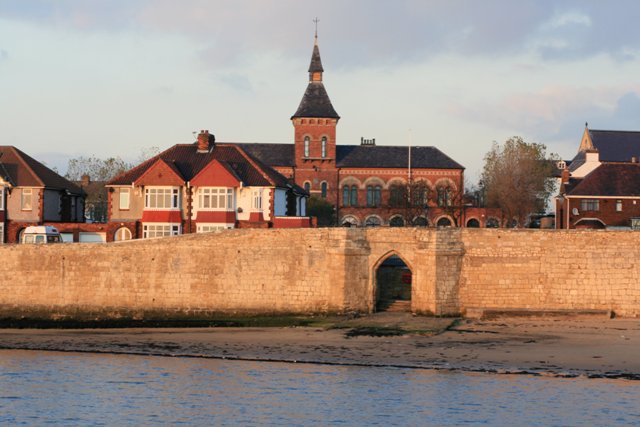Backbarrow
Backbarrow is a village in the Lake District National Park in England. It lies on the River Leven about 5 miles (8 km) northeast of Ulverston in Furness in the county of Cumbria.
History
Backbarrow probably grew during the Elizabethan period, due to the corn mills that were built along the river. Earlier mills at the site had been owned by Furness Abbey, which by this time had been dissolved. Development increased due to the iron furnace that was built in Backbarrow in 1711. The furnace has been described as the first efficient blast furnace. The cotton mills continued to grow in size during the Victorian period.
In 1868 an extension of the Furness Railway was built through the village to transport iron and products from the mills. Though the line was closed in the 1960s with the demise of the ironworks, the section from Haverthwaite to Lakeside, which passes through Backbarrow, remains open as a heritage railway (see Lakeside and Haverthwaite Railway).
Backbarrow was particularly associated with the production of the blue pigment ultramarine, or "dolly blue". The ultramarine factory was established in an old mill building by the Lancashire Ultramarine Company, then purchased by Reckitt & Sons in 1928. The 'blue mill' was well-known locally, as dust from its production gave a blue tint to most of the village. Production of this continued until 1981. The factory, which was known locally as "the bluemills", is now a popular hotel. A display of machinery used in the old factory is maintained by the hotel's proprietors.
Backbarrow was hit by the nationwide floods of November 2009, as the River Leven overflowed causing severe damage to the bridge's walls and both parts of the Whitewater Hotel, as well as the Swan Hotel in Newby Bridge, 1.3 miles further up the river.
In 2010 the Lakeland Motor Museum relocated from Holker Hall to the former site of the Reckitt's Blue Dye Works carton packaging sheds in Backbarrow.
Geography and environment
The growth of the National Park led to an increase in tourism in the region. In particular, Backbarrow has great views of the turbulent nature of the River Leven, just south of Windermere. The river has also been used to develop a small hydro-electric plant, installed in 2000, generating electricity for the National Grid.
Visit the page: Backbarrow for references and further details. You can contribute to this article on Wikipedia.
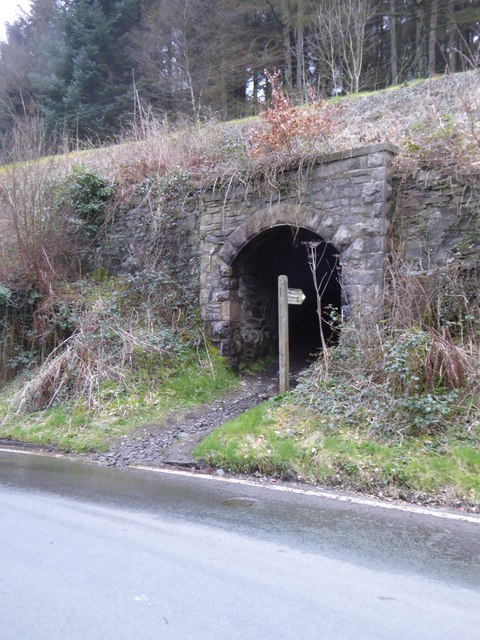
from Geograph (geograph)
Public footpath under the Lakeside & Haverthwaite Railway at Backbarrow
Pinned by Edmund Anon
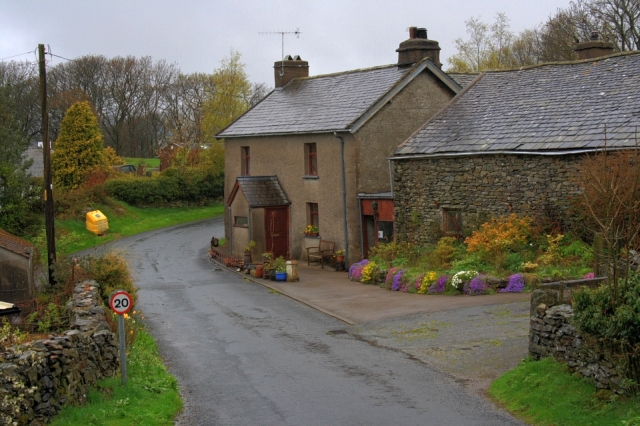
Co-Curate Page
Brow Edge (near Backbarrow)
- Overview Map Street View The hamlets of Low Brow Edge and High Brow Edge in the South Lakeland district of Cumbria are located a short distance south of Backbarrow and close to …
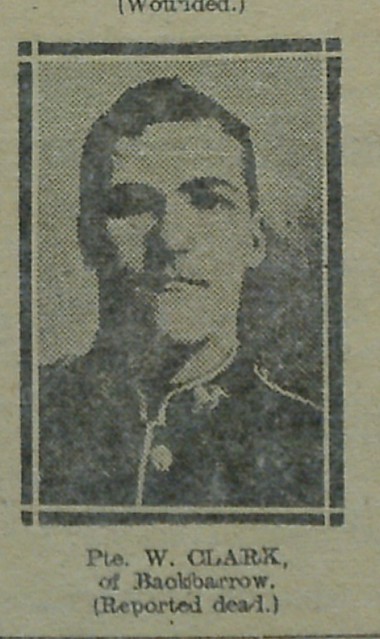
from IllustratedChronicles (flickr)
Pte. W. Clark - Backbarrow - reported dead
Pinned by Simon Cotterill
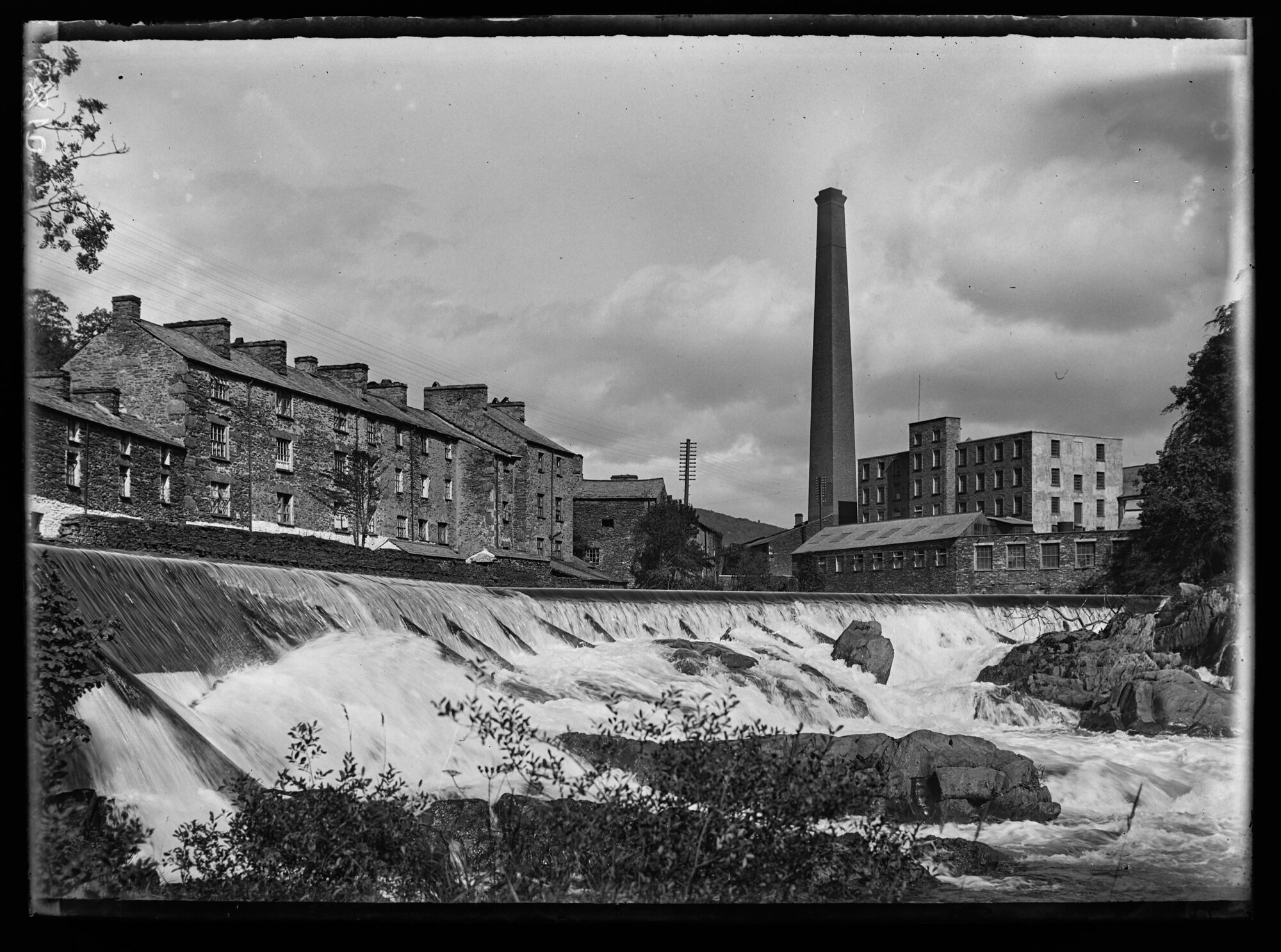
from https://www.sankeyphotoarchiv…
Levens Row & Mill Viewed From Below Weir, 1920s
- Looking North from river level below a weir across the river Leven. Above the weir on the right side of the river stands a mill building with a tall chimney. …
Added by
Simon Cotterill
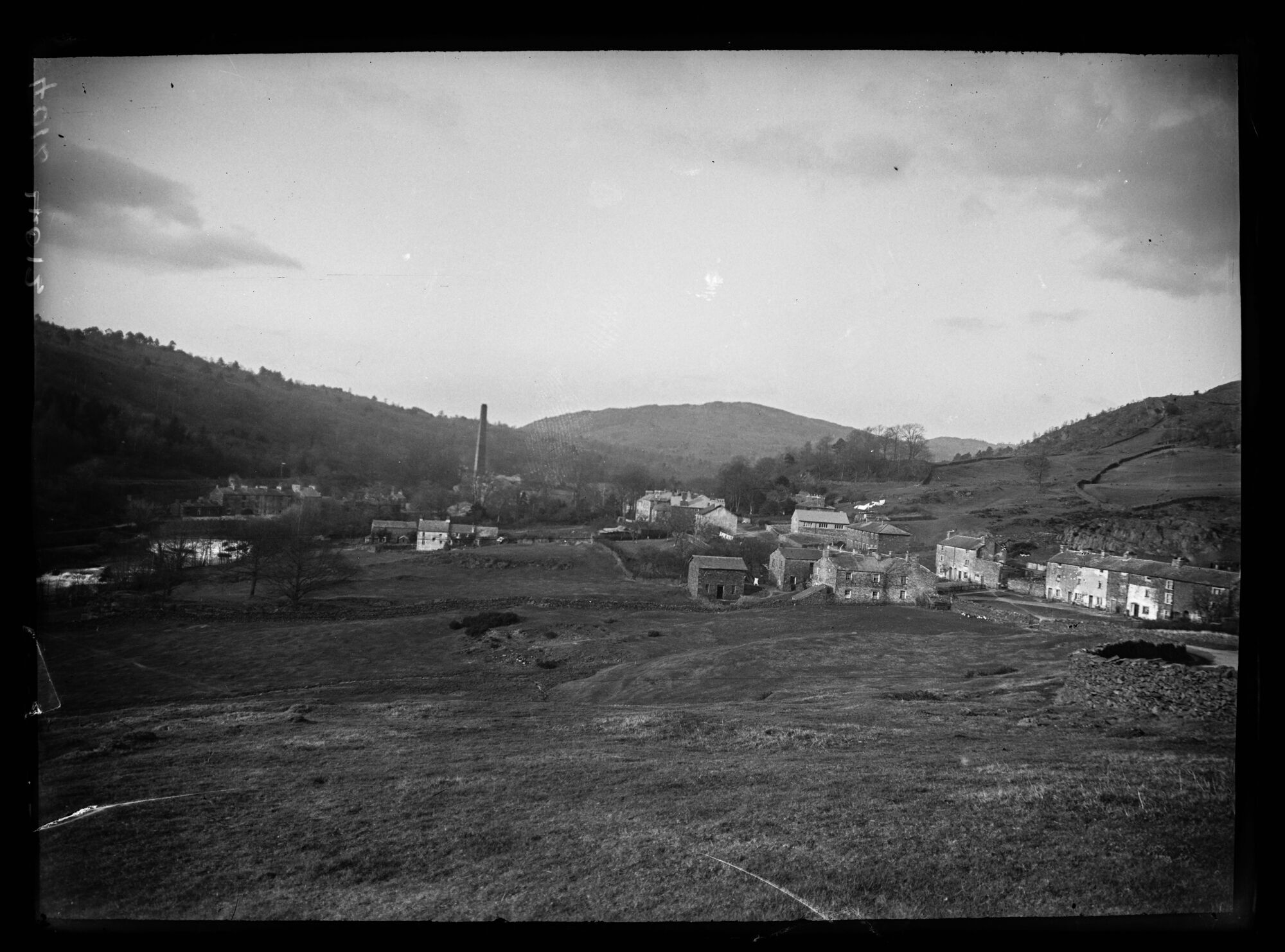
from https://www.sankeyphotoarchiv…
An overview of Backbarrow from Bigland Fell - Early 20th Century
- A view over Backbarrow from the south, with the Dolly Blue mill chimney prominent in the valley, and Finsthwaite Heights beyond. A weir on the Leven is visible. Photo from …
Added by
Simon Cotterill
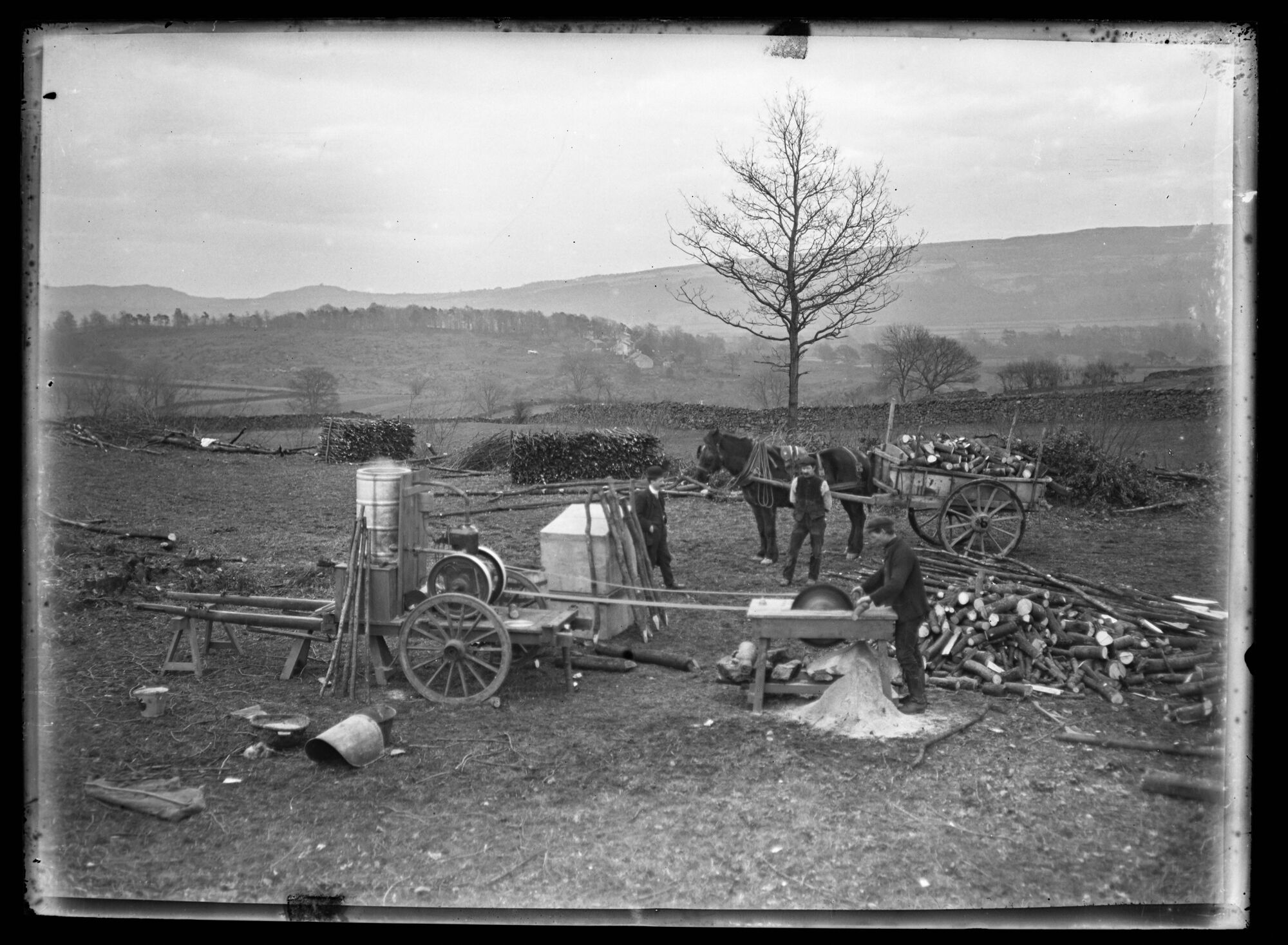
from https://www.sankeyphotoarchiv…
Backbarrow Woodcutting, c.1910
- Stationary engine on cart driving circular saw. Horse and cart with logs, wood stacked for cutting, wood sorted into various piles for alternate applications. Two workmen posing with an extra …
Added by
Simon Cotterill
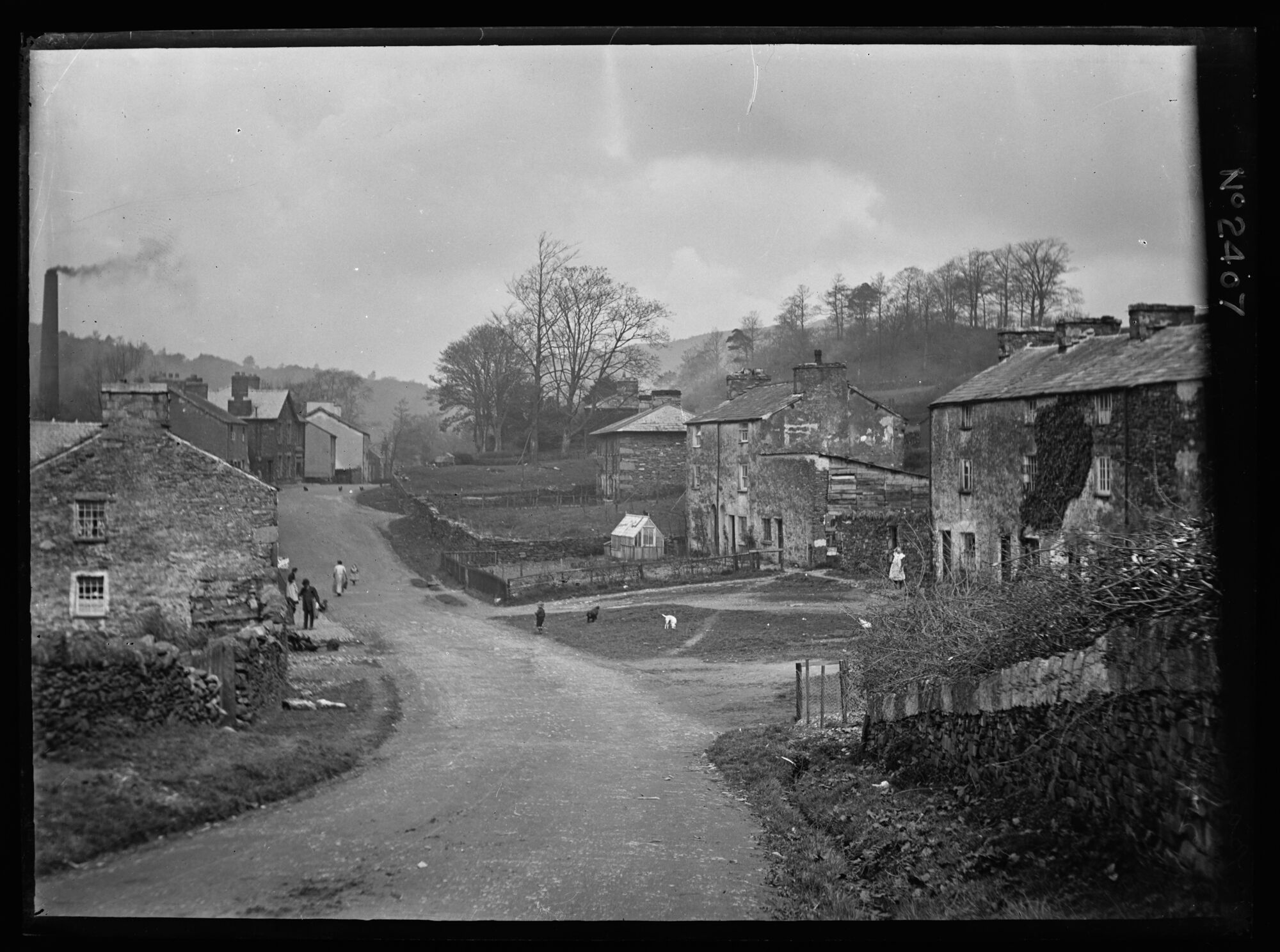
from https://www.sankeyphotoarchiv…
Backbarrow Village - Early 20th Century
- Brow Edge Road (approx outside no. 7 - Google Maps). Various people and dogs wandering about in the absence of wheeled transport. Most of these buildings still exist. Large chimney …
Added by
Simon Cotterill
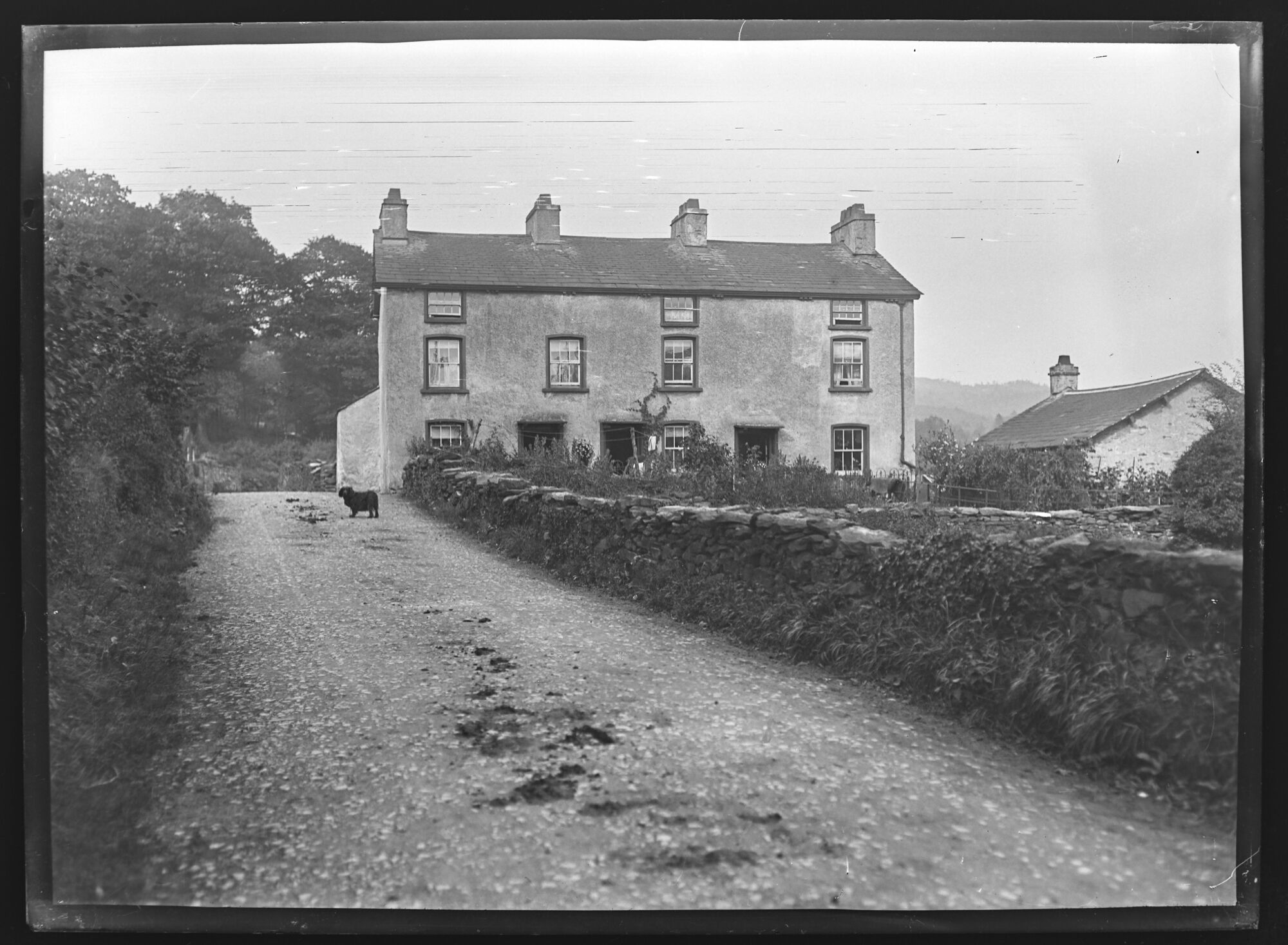
from https://www.sankeyphotoarchiv…
Finsthwaite Lane, Backbarrow, c.1912
- Looking north just above Backbarrow Bridge. Road with stone wall on right with three terraced three storey rendered cottages. Dog in lane. Photo from the Sankey Family Photograph Collection (c/o …
Added by
Simon Cotterill
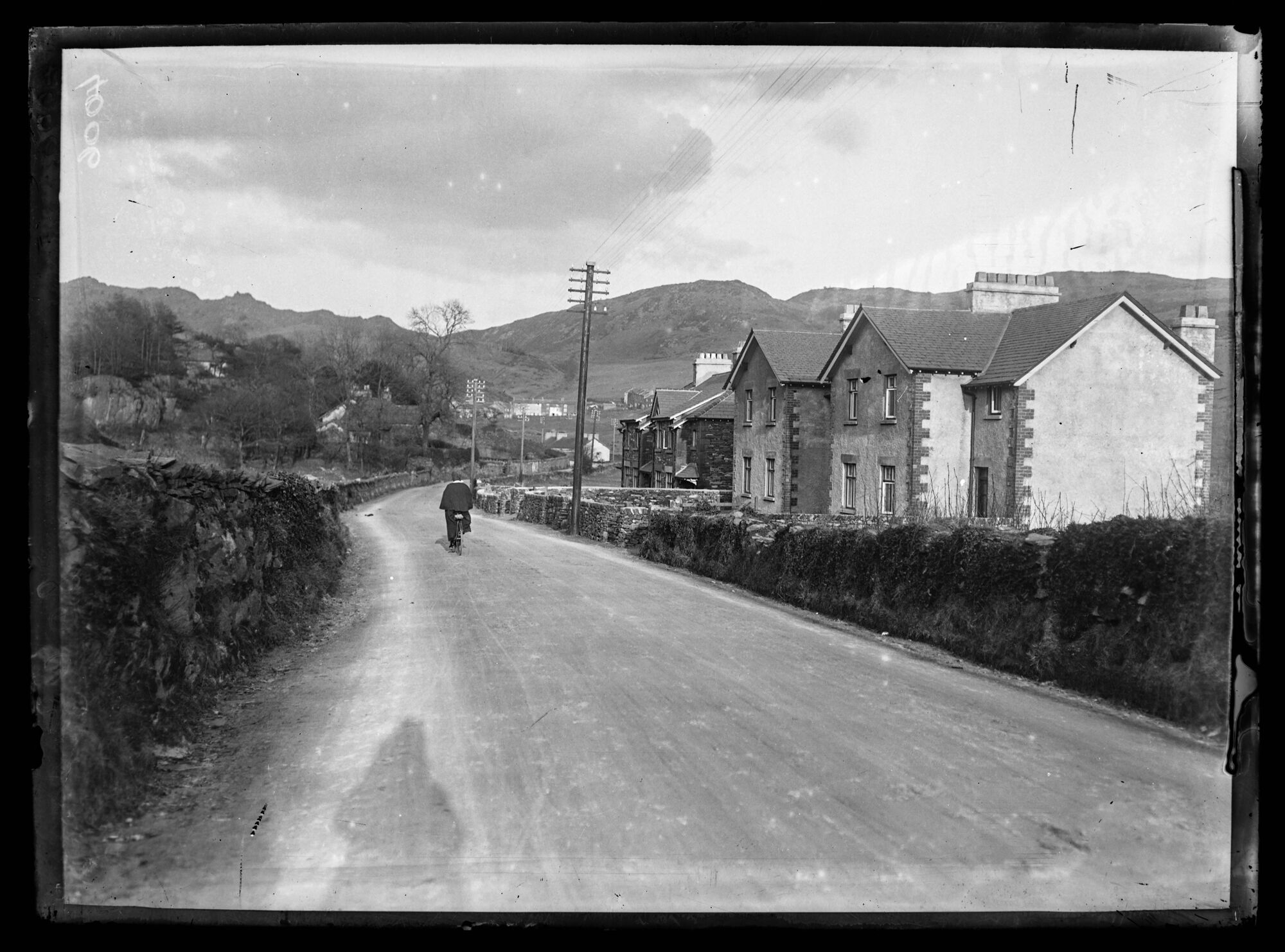
from https://www.sankeyphotoarchiv…
The Glen, Backbarrow
- Photo, early 20th Century. At approx SD 355844 on the back road between Haverthwaite Station and Leven Valley Stores, looking towards the village of Backbarrow and the hills behind. Woman …
Added by
Simon Cotterill
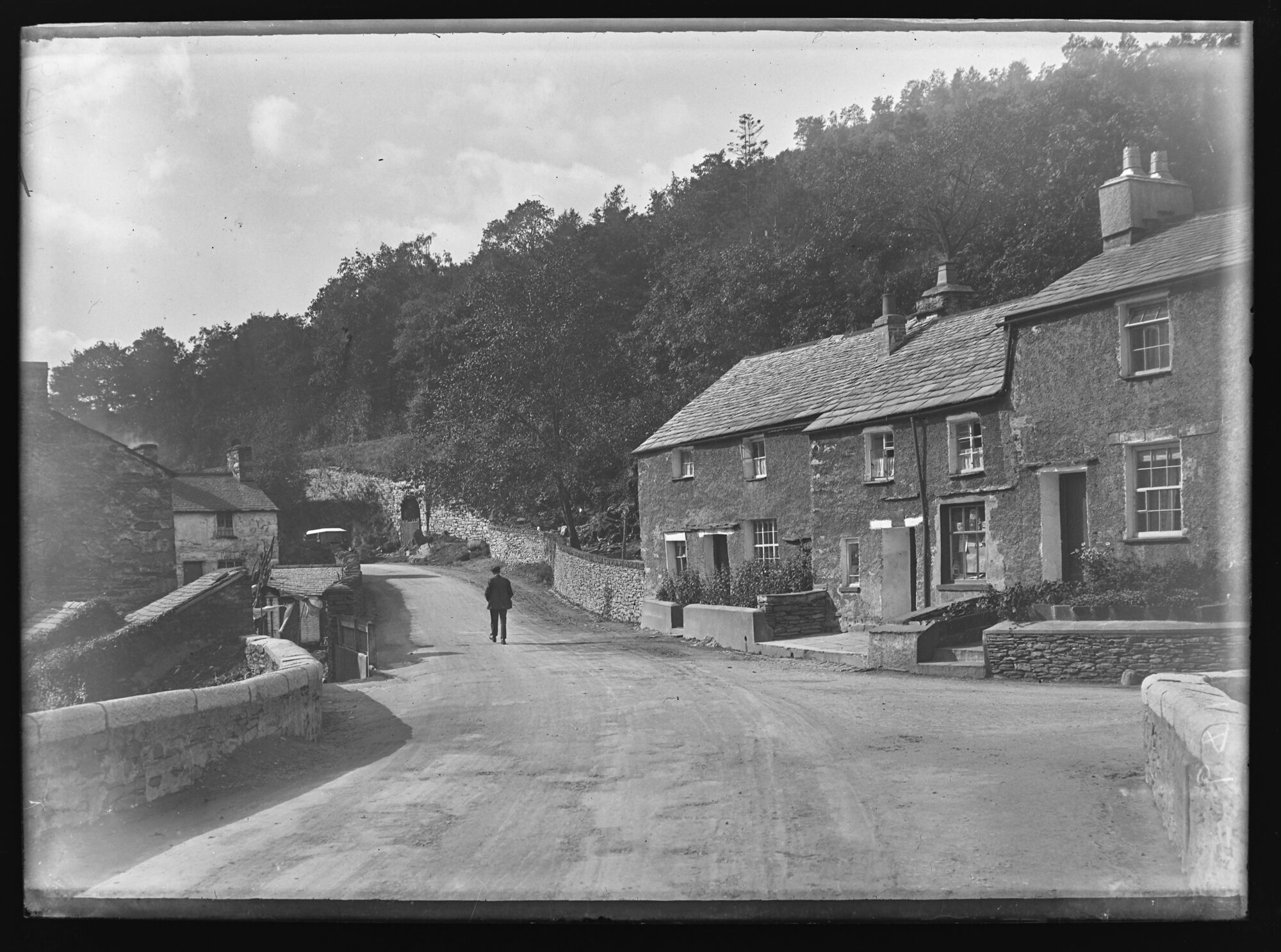
from https://www.sankeyphotoarchiv…
Bridge Cottages, 1920s
- Looking Southwest across bridge over river Leven at Backbarrow. Row of cottages on the right, other buildings to the left. Man walking away from the photographer in the middle of …
Added by
Simon Cotterill


from Geograph (geograph)
Public footpath under the Lakeside & Haverthwaite Railway at Backbarrow
Pinned by Edmund Anon

Co-Curate Page
Brow Edge (near Backbarrow)
- Overview Map Street View The hamlets of Low Brow Edge and High Brow Edge in the South Lakeland district of Cumbria are located a short distance south of Backbarrow and close to …

from IllustratedChronicles (flickr)
Pte. W. Clark - Backbarrow - reported dead
Pinned by Simon Cotterill

from https://www.sankeyphotoarchiv…
Levens Row & Mill Viewed From Below Weir, 1920s
- Looking North from river level below a weir across the river Leven. Above the weir on the right side of the river stands a mill building with a tall chimney. …
Added by
Simon Cotterill

from https://www.sankeyphotoarchiv…
An overview of Backbarrow from Bigland Fell - Early 20th Century
- A view over Backbarrow from the south, with the Dolly Blue mill chimney prominent in the valley, and Finsthwaite Heights beyond. A weir on the Leven is visible. Photo from …
Added by
Simon Cotterill

from https://www.sankeyphotoarchiv…
Backbarrow Woodcutting, c.1910
- Stationary engine on cart driving circular saw. Horse and cart with logs, wood stacked for cutting, wood sorted into various piles for alternate applications. Two workmen posing with an extra …
Added by
Simon Cotterill

from https://www.sankeyphotoarchiv…
Backbarrow Village - Early 20th Century
- Brow Edge Road (approx outside no. 7 - Google Maps). Various people and dogs wandering about in the absence of wheeled transport. Most of these buildings still exist. Large chimney …
Added by
Simon Cotterill

from https://www.sankeyphotoarchiv…
Finsthwaite Lane, Backbarrow, c.1912
- Looking north just above Backbarrow Bridge. Road with stone wall on right with three terraced three storey rendered cottages. Dog in lane. Photo from the Sankey Family Photograph Collection (c/o …
Added by
Simon Cotterill

from https://www.sankeyphotoarchiv…
The Glen, Backbarrow
- Photo, early 20th Century. At approx SD 355844 on the back road between Haverthwaite Station and Leven Valley Stores, looking towards the village of Backbarrow and the hills behind. Woman …
Added by
Simon Cotterill

from https://www.sankeyphotoarchiv…
Bridge Cottages, 1920s
- Looking Southwest across bridge over river Leven at Backbarrow. Row of cottages on the right, other buildings to the left. Man walking away from the photographer in the middle of …
Added by
Simon Cotterill
